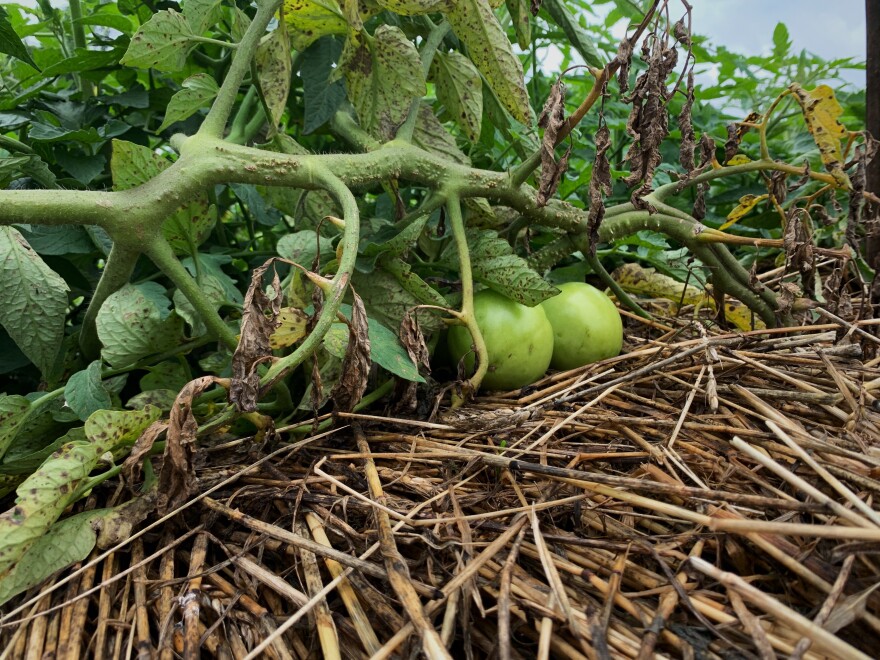Record rainfall in Cincinnati is causing a local co-operative farm to re-adjust its harvest plan.
According to the National Weather Service, more than two inches of rain fell on Sunday, making it the fourth wettest year on record so far.
Co-operative farm Our Harvest is struggling to keep up with the impact of the downpours. "We prefer not to get in the field when it's just straight mud and you're tearing up the ground and soil structure," says Stephen Dienger, a co-farm manager. He says they are extending their indoor harvest period because of heavy rain falls.
Carrots buried in weeds and tomatoes covered in disease could impact Our Harvest's bottom line. Dienger says an inch a week is normally enough. As of Sunday, rainfall was 11 inches above normal.

"Say if you're selling a head for $2 dollars of lettuce, we've got probably 150 heads out there that we had to abandon," he says. "So that's $300 dollars we could have had right there."
"Yesterday I sank up to my shins in the mud trying to harvest squash. I think it's yet to be seen how bad it's going to be but it's definitely worrisome," says Nico Greiner, a farm assistant at the worker-owned cooperative.

The over-saturation is increasing weeds and stressing produce. Fungal and bacterial diseases spread easier in the current weather conditions. "It starts in the soil and splashes up on the plants and that just spreads throughout the plants as the winds blow and they touch each other," Dienger says.
Farmers are working against the rain to find natural ways to have a successful yield, including raising their produce beds and mulching. If a dry spell follows, the tomatoes could outgrow the disease but that is unlikely to happen this week.
"Low pressure is forming along the boundary and cells are forming," says James Gibson, observing program leader at the National Weather Service in Wilmington. "The reason we have so much rain and flash flooding issues is because of training storms. So, they'll basically move over the area, move out. But they will build downstream and move over the exact same area."
According to the National Weather Service, rain is forecasted to move around Ohio and Kentucky until Thursday afternoon before returning again on Saturday.


